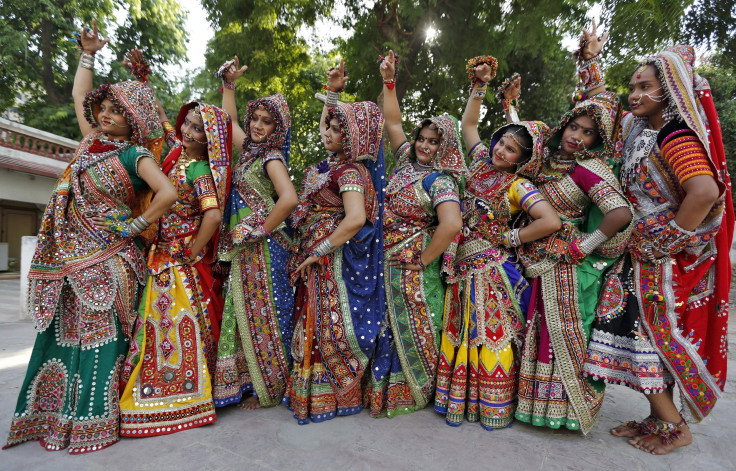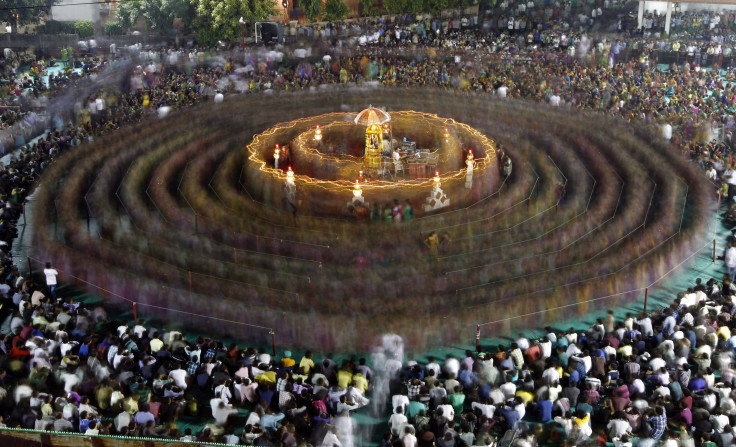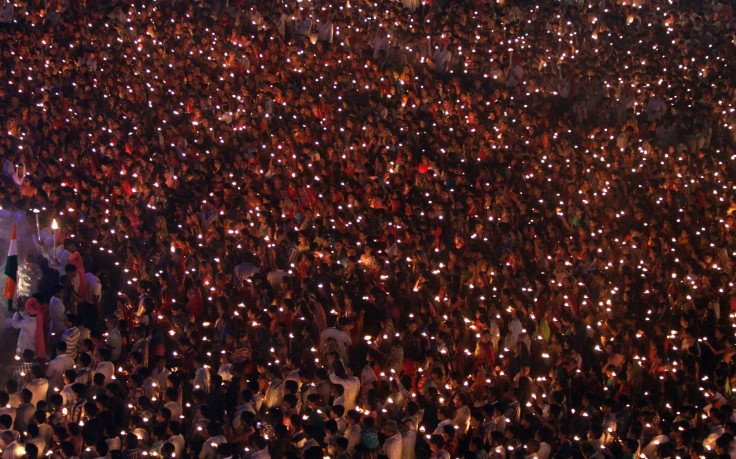What Is Navratri 2015? Hindu 'Nine Nights' Festival Celebrates Motherhood Of God, Triumph Of Good Over Evil

One of the most celebrated Hindu festivals, Navratri, is set to begin Tuesday. The celebration, which literally translates as "nine nights,” is dedicated to the Hindu goddess Durga. She represents purity and power in Hindu belief and long ago was reportedly associated with the fertility of earth, which feeds us, its children. The festival also symbolizes the triumph of good over evil, as in Hindu mythology, Durga famously destroyed the demon Mahishasura after a battle that lasted nine nights.
The 10 days and 9 nights of Nevratri are filled with ritualistic chanting, prayers, fasting and celebration. In some places in India, festivities include traditional dance and music, and by some customs last late into the evening, and sometimes entire nights. Farmers sow their seeds and thank Durga for her blessings, asking for a healthy crop as women plant nine different types of grain in small containers and offer the saplings to the goddess. The time of Navratri is meant for introspection and purification.

Hinduism is the only religion in the world that celebrates the motherhood of God, according to the BBC. The largest and most elaborate celebrations happen in Bengal, where Indians worship massive idols of Durga. Women often go shopping for new clothes, as the time is considered ideal for buying gold or jewelry. Practices, however, vary by region.
The 10th day of the festival marks the end of the fight between Durga and the demon, and is a celebration of her success. After the nine days of worship, images of the goddess are paraded through the streets. The celebration occurs twice a year, once at the start of summer and once at the start of winter.

According to About Religion, there are some perks to celebrating the nine days: “She will bestow on you wealth, auspiciousness, prosperity, knowledge and other potent powers to cross every hurdle of life. Remember, everyone in this world worships power, i.e., Durga, because there is no one who does not love and long for power in some form or the other.”
© Copyright IBTimes 2025. All rights reserved.






















